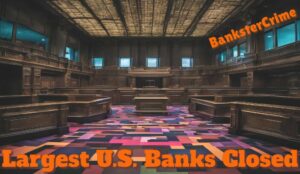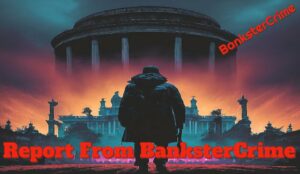Why is the love of money a root of all kinds of evil? To help us answer this, we must look at the passage in its greater context. Near the end of the letter (1 Timothy 6:2–10), Paul is exhorting Timothy regarding the need to “teach and urge these things” to his congregation, “these things” referring back to earlier material in the epistle. Paul then warns Timothy about false teachers who will seek to warp and pervert the content of sound doctrine for their own greedy gain (verses 3–5). Now notice what the apostle says at the end of verse 5: “Imagining that godliness is a means of gain.” These false teachers do what they do for the fame and notoriety they achieve, along with the financial rewards it brings.
The Bible has a lot to say on the subject of injustice. We know that God is in favor of justice; we know that He is against injustice, even in the most basic terms. The writer of Proverbs mentions this: “The LORD detests differing weights, / and dishonest scales do not please him” (Proverbs 20:23). Justice is foundational to God’s throne (Psalm 89:14), and God does not approve of partiality, whether we are talking about a weighted scale or an unjust legal system (Leviticus 19:15). There are many other verses, in both Old and New Testaments, that give us an idea of God’s distaste for injustice (2 Chronicles 19:7; Job 6:29; 11:14; Proverbs 16:8; Ezekiel 18:24; Romans 9:14).
On Friday, The Texas Department of Banking closed the Enloe State Bank in Cooper, Texas, making it the first Federal Deposit Insurance Corp. (FDIC) institution to fail since late 2017.
All customers should experience no interruption in services, as the bank opened Monday morning as a branch of Legend Bank. Checks can still be written using current accounts. Customers with loans are encouraged to continue to make their loan payments as well. The acquiring bank purchased assets of about $5 million of the total $32 million that the bank showed in assets, leaving the FDIC to absorb the remaining $27 million in assets.
As the first bank closure recorded in the nation in the past 17 months, the failed bank is viewed as anamoly, and not a sign of a downturn in the economy.
The closing of the Enloe State Bank comes just four weeks after a fire was reported at the location. The investigation into that fire, that was determined to be “suspicious” by county officials, is being conducted by the Texas State Fire Marshall as well as the ATF.
Last year was the first year since 2006 that there wasn’t a FDIC-bank failure. There weren’t any failed FDIC banks in both 2005 and 2006. Then there were three in 2007. Failed Banks
Eight banks failed in 2017, and all were acquired by larger lenders. Failing banks used to be a more common occurrence. The peak year for failures after the financial crisis was 2010, when 157 institutions collapse
With all the smoke and mirrors from Washington, few folks heard it. In fact, we saw no mentions of the warning from any of the mainstream outlets.
They were too busy, from what we can tell, covering Matt Lauer’s antics.
Ironically, the man waving the warning flag this week is about to depart from one of America’s largest companies. But he’s leaving of his own will… with no rumors, allegations, charges or even scandals.
But as Ken Chenault leaves his beloved American Express behind, he’s issuing a stark warning.
America’s banks are in trouble.
He blames a topic we’ve studied closely. It’s an unstoppable trend that threatens to upend the nation’s economy.
Chenault says it’s all part of “one of the biggest strategic blunders of the last 20 years.”
We say it’s all part of the war on cash.
NEW MONEY… NEW WEALTH
You see, Chenault is convinced that China’s payment model is coming to the U.S. And when it does, American banks will suddenly find themselves pushed out of the game.
After building their financial fortresses on the idea that they had their mitts in nearly every financial transaction in the country, big banks like Wells Fargo, JPMorgan Chase, Citigroup and Bank of America are about to get beaten up by fresh technology and a sweeping new trend.
Chenault points to what has happened in China in recent years.
That’s where cash is no longer the monetary token of choice. Instead, folks are using apps and other software to pay each other.
Every time they do, banks miss out on a potential fee.
Right now, just two companies handle 90% of China’s cashless transactions… and neither of them is a bank.
If you’re looking for more income in today’s zero-interest world, we’ve found a new cash-generating sideline where regular folks – including you – can rake in as much as $7,190 each month.
It sounds crazy, I know… But one fellow, Patrick Connor, calls one of these opportunities a “no-brainer.”
That’s what has Chenault so concerned. After all, he’s got an insider’s point of view.
As he hands the reins of his firm to his hand-selected successor, Chenault knows the headwinds the industry faces.
Thanks to this fresh technology, retailers and consumers are pushing banks and even credit card companies aside.
It’s hurting their profits.
In the late 1990s, for instance, American Express nabbed 3.2% of every transaction on its system. Now, thanks to fierce competition, it gets just 1.8%.
It’s why many of us think the company has reached its peak. Sales, earnings and therefore share price have all slumped since topping out in 2014.
As Chenault bows out, we can’t help but think that notion weighs on his mind.
WAVING THE FLAG
But what’s most powerful about his warning this week is that it should serve as a stern wake-up call to investors who aren’t paying attention.
As cash is eliminated from our economy (for the reasons I highlight here), there will be unintended consequences.
Chenault outlines them thoroughly when he points to the pain the big banks are starting to see.
If we’re not using cash, we have no reason to send our paychecks to the bank… we have no reason to write a check and move that cash around… and we have no reason to get hit with the banks’ bevy of fees.
It’s why we recently told Manward Letter readers about a stock that’s quickly becoming the transplanted heart of the American company. It’s a company that doesn’t deal with cash… and certainly doesn’t need it.
Its share price has nearly doubled just this year.
It’s easy to become complacent when stocks are trading at all-time highs. And it’s easy to get greedy when bitcoin millionaires are being spawned overnight.
We’ll certainly take advantage of these moneymaking trends, but only a fool would drive using only the rearview mirror.
The road in front of us is filled with twists and turns.
If the last decade taught us anything, it’s that when a banking insider sends us a warning… we’d better listen.Source
Greed is a strong and selfish desire to have more of something, most often money or power. There are many warnings in the Bible about giving in to greed and longing for riches. Jesus warned, “Watch out! Be on your guard against all kinds of greed; a man’s life does not consist in the abundance of his possessions” (Luke 12:15). “Do not store up for yourselves treasures on earth, where moth and rust destroy and where thieves break in and steal… You cannot serve both God and money” (Matthew 6:19, 24b). Did Jesus pursue the acquisition of money? No. On the contrary, He became poor for our sake (2 Corinthians 8:9) and had “no place to lay his head” (Matthew 8:20). Neither did Jesus pursue power. Rather, He instructed, “Whoever wants to become great among you must be your servant, and whoever wants to be first must be slave of all. For even the Son of Man did not come to be served, but to serve, and to give his life as a ransom for many” (Mark 10:43–45).
Greed and a desire for riches are traps that bring ruin and destruction. “The love of money is a root of all kinds of evil,” and Christians are warned, “Do not put your trust in wealth” (see 1 Timothy 6:9-10, 17-18). Covetousness, or having an excessive or greedy desire for more, is idolatry. Ephesians 5:5 says, “For of this you can be sure: No immoral, impure or greedy person – such a man is an idolater – has any inheritance in the kingdom of Christ and of God.” The principle to remember is contained in Hebrews 13:5: “Keep your lives free from the love of money and be content with what you have, because God has said, ‘Never will I leave you; never will I forsake you.’” Source
StevieRay Hansen
Editor, Bankster Crime
MY MISSION IS NOT TO CONVINCE YOU, ONLY TO INFORM…




